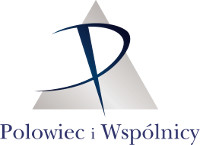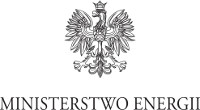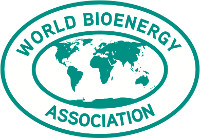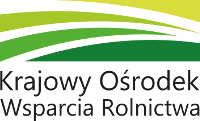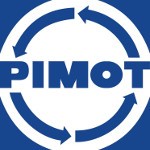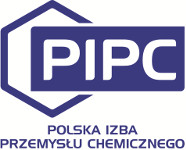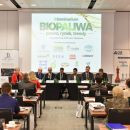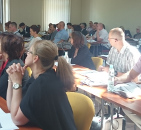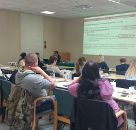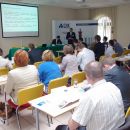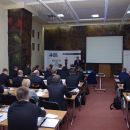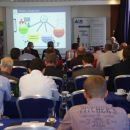| Article Index |
|---|
| Start |
| Gallery |
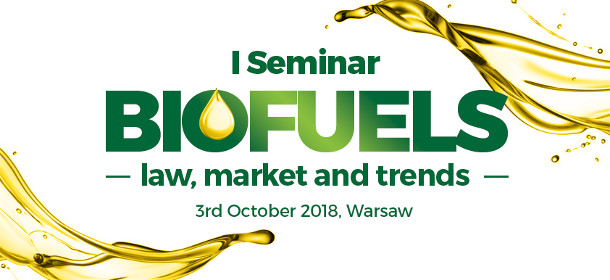
"The situation on the fuel market is very dynamic. Only last year, new laws and regulations took 27,000 A4 pages. By dividing this number into working days, we come out with a new regulation every day. This gives a picture of the pace of changes on the market and shows how quickly we have to adapt to these changes." - Beata Superson-Polowiec, Partner, Kancelaria Polowiec i Wspólnicy.
"We need to change the raw materials approach to biofuels - nature is not able to produce as much biomass so that it can be used for energy purposes in line with huge demand. Therefore, the biofuels market is currently at a certain distance" Krzysztof Biernat, Prof Ph.D. (Mech. Eng.), Head of Department for Fuels and Bioeconomy, Automotive Industry Institute (PIMOT), in these words opened the seminar "Biofuels - law, market and trends", which we organized on October 3, 2018 in Warsaw. The professor was the Moderator of the entire seminar.
Introductory presentation was given by Bharadwaj Kummamuru, Executive Director at the World Bioenergy Association. The main goal of the organization is to promote and develop green energy and support innovative projects on biofuels, biogas, etc. The presentation concerned the development of the bioenergy sector and biofuels in a global perspective. "Most bioethanol is produced (by order) in the USA, Brazil, China, Canada, Thailand. Most biodiesel is produced in the USA, Germany, Argentina, Indonesia and France. There is no concept of "bad biofuel" - we can only talk about improper local legal regulations or improper production processes. An enormous opportunity for biofuels lies in the aviation industry - carriers should consider the mass use of biofuels on their voyages, because it would be much better than electrification" - he said.
The next lecture was delivered by Angel Alverez Alberdi, Secretary General of European Waste to Advanced Biofuels Association. The organization works in the interest of producers of waste-based biofuels using raw materials such as oils (UCO), tallow and other waste for the production of sustainable biofuels. The presentation concerned objectives and challenges for 2021-2030 in the context of the European REDII directive. "I have been involved in consultations with the European Commission since the first draft of the REDII directive and subsequent negotiations began. By 2021, all European countries covered by the directive must adapt their local regulations to the requirements contained therein and plan a strategy for 2021-2030. It is not a challenge. The Directive assumes the participation of 14% biofuels in transport by 2030. As EWABA, we do not think that this goal is very ambitious, therefore it is very likely that it will be changed by the amendment in 2023 (work will start in 2021)" - said the speaker.
Jakub Gil, a lawyer at the Polowiec and Partners Law Firm, summarized the legal block with his lecture on Polish regulations for biofuels. The office conducts a thriving energy and fuel practice advising key players on this market. In his presentation, the speaker discussed legal regulations affecting the biofuel industry - amendment to the act on biocomponents and liquid biofuels, the act on electromobility and alternative fuels, the act on National Tax Administration and quality on the fuel market. Among the analyzed issues were the obligations to implement the National Index Target and the National Reduction Goal, as well as the emission fee or mandatory bioblending. "Thanks to many years of cooperation with the MOL Group, our Law Frm is present on the biofuel market, which gives us the opportunity to gain new experiences. The last most important regulations for biofuels is the introduction of obligatory bioblending, change of reduction coefficients, partial change of reporting to National Center for Agricultural Support and Energy Regulatory Office. As part of the second amendment to the Act on biocomponents and liquid biofuels - the creation of the Low-Carbon Transport Fund, but most importantly, in my opinion, clarified the definition of the obligation to implement the NITs, which precludes the interpretation of unfavorable interpretations that appeared on the market and issued by the President of the Energy Regulatory Office. Another very important change is the change in the level of penalties, in particular regarding obligatory bioblending" - he said.
The fourth presentation was delivered by Wojciech Rylski, Head of the Renewable Energy Sources Team in the Innovation Department at the National Support Center for Agriculture. The tasks of NSCA include monitoring the market of biocomponents and liquid biofuels in the scope of keeping a register of biocomponent producers and entities importing biocomponents. In addition, the responsibility of the General Director of NSCA is to receive periodic reports and information from producers of biocomponents, importing entities, administrators of certification systems and entities implementing the National Indexe Target. The National Center for Agricultural Support can inspect entities entered into registers and administer administrative and financial penalties. "Biocomponents may be counted towards the implementation of the National Index Target only if they meet the Sustainable Development (KZR) Criteria. NSCA maintains four registers of regulated activity. Every entrepreneur who wants to produce, import biocomponents from abroad is required to obtain an entry in one of the registers. The lack of such an entry and conducting business may be subject to financial penalties. Currently, there are 23 entities in the register of biocomponent manufacturers. In 2017, a total of PLN 889,128 thousand tons of esters was sold." - said the speaker.
The presentation summarizing the morning part of the conference was delivered by Arkadiusz Majoch, Head of the Fuel and Standardization Team at the Development Office of PKN Orlen. In his current role, he is involved in work in the areas of fuel and exploitation technologies, greenhouse gas emissions, fuel and biofuel production. In his presentation he discussed trends in the development of biofuels and fuels production technology. The presentation was divided into three parts: factors, technologies, stakeholder expectations. "Regarding the current legal regulations, in principle PKN Orlen has one most important goal - to implement the NIT in accordance with the principles. At present, we carry out duties through so-called conventional biofuels, i.e. bioethanol and fatty acid methyl esters. The most important thing for us is that the biocomponents be produced locally, safe and that they are properly certified. PKN Orlen actively participates in the research of new technological possibilities for biocomponents, for example by launching an installation producing third generation biocomponents (from oil algae and baltic diatoms in refinery operating conditions). We use properly prepared post-process water for the project. The project is carried out in cooperation with the University of Warmia and Mazury in Olsztyn and the University of Szczecin. In addition, PKN Orlen engaged in the project of building a unit in which ethanol from lignocellulose will be processed. The project has its location - in Jedlicze. The installation will produce synthetic ethanol." - the lecturer concluded his presentation.
The afternoon part of the conference was started by Panu Routasalo, Sales and Product Management Director at UPM Biofuels. The company produces biofuels at its Lappeenranta refinery. BioVerno is manufactured from wood-based, tall-scale oils in the hydrotreating process developed at the UPM Research Center in Lappeenranta in south-eastern Finland. UPM is a pioneer in the transformation of the forest industry, striving to use wood with optimum efficiency and to maximize the life cycle of wood-based raw materials. The speaker presented in detail both the refinery and the production process of biofuel made of wood.
Our conference could not miss a presentation about the quality of biofuels and biocomponents. He was presented by PhD Paweł Bukrejewski, Deputy Head of the Analytical Laboratory at the Industrial Automotive Institute. During the presentation, the types of biocomponents and biofuels in relation to laws, the technical method of controlling the content of biocomponents in fuels and liquid biofuels as well as quality requirements for biofuels were discussed in detail.
The last presentation was given by Michał Tarka, a representative of the Biomethane Council operating within the Union of Producers and Employers of the Biogas Industry. The presentation concerned the use of bioCNG from biomethane as a biofuel. The main objectives of the Council's activities are the promotion of modern renewable energy fuels in government institutions, assistance in the implementation of biomethane projects, proposals for legal regulations based on the latest European solutions and cooperation with European institutions such as EC, EBA, ERGAR, DENA. "Biomethane is beginning to gain importance both on the Polish and European market. It is produced in biogas plants and thanks to them, it can be treated as a biocomponent for fuels. There are 308 biogas plants in Poland, which gives huge potential for biomethane production and treating it as a biocomponent for liquid fuels, which will allow settling the NIT. Due to the recent amendment to the RES Act, biogas plants will develop long-term thanks to the support system they have received" he said.
After all the presentations, it's time for a discussion panel. Moderated by Beata Superson-Polowiec, Partner at the Polowiec and Partners Law Firm. She has experience in the field of energy efficiency, renewable energy, EU ETS, cogeneration, liquid fuels, gas and heat market. Represents clients in concession proceedings and other proceedings before the President of Energy Regulatory Office.
The discussion was attended by:
- Tomasz Pańczyszyn, Head of the Department of Biocomponents, Liquid Biofuels and Other Renewable Fuels, Department of Renewable Energy, Ministry of Energy
- Robert Brzozowski, Vice President of the Board, UNIMOT
- Michał Obiegała, Manager for Regulatory Affairs and Government Relations, BP Europe
- Michał Lechowicz, Deputy Director of the Commercial Division, PERN
- Marcin Niemczyk, Sales Director, Solumus
- Zygmunt Gzyra, President of the Board, National Chamber of Biofuels
"The situation on the fuel market is very dynamic. Last year, the new laws and regulations took up 27,000 A4 pages. By dividing this number into working days, we come out with a new regulation every day. This gives us a picture of the pace of changes on the market and shows how quickly we have to adapt to these changes" - Beata Superson-Polowiec began a discussion in these words.
First, she asked Robert Brzozowski how an independent importer sees the impact of regulatory variability (in terms of biofuels and NIT) on the business. "Unimot is one of the independent importers, in particular diesel oil on the Polish market. I do not conceal that the topic of biofuels and NIT is something that we do practically every day. Being 20 years in the fuel industry, the last two years I spend mainly on NIT, meetings with lawyers or the legislator to dispel the doubts we have as a company. Even 2-3 years ago there was no obligation to blend, later it was introduced in part and quarter. Such changes cause not only financial but also logistic problems. We do not have our own infrastructure, which makes us completely dependent on subcontractors and it requires a lot of effort to fulfill our duties properly. We have two main problems: finding ourselves in the "thicket" of complicated regulations and the continuously increasing costs. Over the last two years, the cost of NIT has increased by over 200%. Penalties for failing to fulfill the obligations under the Act also worry us a lot." concluded the Unimot representative.
Zygmunt Gzyra referred to this statement: "I approach the predecessor's comments with all understanding, while the growing NIT and the 10% rate by 2020 have been known for at least several years. If someone wanted, he could prepare for it and it is easier to enter a new time - I agree that due to the higher levels it is more difficult to blend and exceed the so-called. blending wall. For a decade or so I have heard a discussion in the refining industry that blending is the simplest and most economical way to accomplish the NIT. Therefore, today speaking about obligatory blending as a surprise and a solution that is not beneficial to the industry seems to me a bit surprising." - he commented.
The next question was addressed to Mr Michał Obiegała, Regulatory Manager and Government Relations of BP Europa. Moderator asked him a question about the implementation of NIT and blending in comparison to other countries in which the company is present. "In Poland it is definitely more complicated. We look at it from the perspective of a company operating in several European countries, in fact in two connected topics: through the prism of reaching biofuels and their usability in the country, and we combine these issues with the reduction of carbon dioxide emissions. If we look at the German market, we see other applications: reduction of CO2 emissions, which automatically involves the use of first and second generation biofuels. In Poland, we have been operating under a legal regime for around 20 years, which completely shifts responsibility into one industry - fuel. We are still learning all these regulations, but in BP's view we should move towards a revision of the law practically from scratch. The provisions are not entirely satisfactory, it would be necessary to create a law that would include solutions for all interested parties, including fuel companies with the greatest responsibility. - finished.
"Examples of the leading economies of Western countries have been here. In these countries there is no such thing as a reduction factor, separation of the biocomponent from B100. That is why I think that we should not compare it - there is a different approach in these countries, definitely more market-oriented. In these countries, the legislator is looking for solutions that will promote biofuels without burdening only one industry. In Poland, unfortunately, the fuel sector bears all the costs of implementing statutory obligations under a regime of immense penalties, which are disproportionate to possible offenses. For example - the maximum penalty threshold is 15% of revenue, and in the case of domestic fuel ponentats: Lotos - for 2017, 24 billion revenues, potential penalty: 3.6 billion. PKN Orlen - for 2017, PLN 95 billion, potential penalty: PLN 14 billion I think that's enough." - commented Marcin Niemczyk.
"It is a good moment to discuss Mr. Michał Lechowicz, Deputy Commercial Director at PERN, how mandatory blending looks from your perspective and in which areas do you see the biggest problems?" - said Mrs Moderator.
"PERN is a leader when it comes to logistics - including transport, storage and handling of oil and fuels. We look at the rules a little differently, because the law is not a barrier for us, but a duty. We treat recipes as an indication of what we as a company need to adjust so that our clients will not have problems. For 10 years there, when I started my adventure with the fuel industry, I commissioned blending installations. We need to adapt the infrastructure to the statutory requirements to secure our clients. We often meet with problems of budget, investment, obtaining construction permits in a short time so that we can make the installation for our clients on time. The economic aspect is also important - having infrastructure all over the country, we try to invest in such a way as to maintain balance and thus fulfill all our duties " - concluded the representative of PERN.
The representative of the Ministry of Energy, Tomasz Pańczyszyn was asked to refer to the postulates and statements of industry representatives: "While listening to the discussion, I got the impression that I had gone back in time. We return to the discussion explaining the validity of the solutions contained in the Act. It seemed to me that these issues had been explained in all areas long ago. The last time has made me aware that there are still participants in this market who require care from us. As I listened to the amount of regulations issued by the Minister of Energy, I did not know that we do so many things! Let us pay attention to the last two years, which were a certain element of an effective and victorious fight against the gray zone. This fight has caused that a number of regulations have been changed very quickly and dynamically, including a number of provisions regarding biocomponents and liquid biofuels. The Ministry of Energy is trying to approach legislation in a responsible way - these are always regulations widely consulted with the industry, while there are of course various kinds of mistakes, which we react to quite quickly. There is also a whole area of legislation to adapt to the RED II guidelines - here I agree that the situation is complicated especially in activities up to 2020. We show that adjusting to the directive is not only the embodiment of legal obligations in its assumptions. One of the previous speakers encouraged the author's approach to these solutions, which I generally support. We would like the implementation of the provisions of the directive not to bring only environmental effects but also the socio-economic and economic consequences.
Another issue that I would like to comment on is bioblending. Bioblending did not take off from nowhere, it is the effect of a concrete act of entrepreneurs. I would like to remind you that according to the Act, once a biocomponent has been included in the NIT, it can not be counted again. We've bred a situation for ourselves that we could not avoid reacting to. And the answer to the question of whether bioblending is an ephemera and whether tomorrow will leave or is a permanent solution has probably already been explicitly granted. This is a permanent solution. If you are an importer and you do not have direct access to the infrastructure, I say with full consciousness: you must be aware of life in such and no other formula. We already have our thoughts after the first months of the blending obligation and although I already know that the blending will be, I also know that it will undergo certain corrections. I believe that we should no longer sanction the solution that quarterly billing intervals will be on market participants. This very demanding task and fighting every quarter in fuel bases is not easy. We would like to introduce an annual solution with quarterly reporting. At the same time, we would like to direct the discussion so that the level of blending can be raised, because the one that was set was the result of talks with the industry. The effect of discussions with PERN representatives, taking into account investment plans and strategy assuming the real possibilities of the NIT implementation by the industry. It should lead to a situation in which independent importers become full participants in the legislative process. Something like that happened that many importers, operating in the market structure, not being associated in any organizations, bypasses the possibility of talks with the Ministry of Energy. I cordially invite you to discussions, to meetings with the Ministry, because we are very open to it. However, I can not agree to a discussion in which you draw the solutions in a subjective way showing that they are the most appropriate and the best of the whole basket of solutions that already exist in the world. In addition to fuel producers, importers play an important role in this market. And it is important that their voice be heard and seen. That's why I encourage you to meetings and discussions so much." - he commented.
"I have to add one thing - in fact, for some time there has been a huge change of the Ministry's attitude for consultations and wider discussions with the industry and not only the Department of Fuels, but also others who are looking for solutions remaining ready for talks." - commented Beata Superson-Polowiec.
The discussion panel lasted several dozen minutes over the planned time due to an interesting discussion between the speakers. Many issues have been clarified. For sure it will be the beginning of new cooperation and industry talks on new solutions for the biofuels sector.
This article has been edited by the CBE Polska team based on discussions and presentations delivered during the "Biofuel - Law, Market and Trends" Seminar, which was held on October 3, 2018 in Warsaw.
The Legal Partner of this year's edition of the Seminar was the Polowiec and Partners Law Firm.
The Moderator of the seminar was Krzysztof Biernat, Prof Ph.D. (Mech. Eng.), Head of Department for Fuels and Bioeconomy, Automotive Industry Institute (PIMOT)
In addition, in the seminar involved: Ministry of Energy, National Center for Agricultural Support, PKN Orlen, World Bioenergy Association, European Waste-to-Advanced Biofuels Association, UPM Biofuels, BP Europe, PERN, UNIMOT, Solumus, Automotive Industry Institute, Union of Producers and Employers of the Biogas Industry, National Chamber of Biofuels.
Honorary Patrons of the seminar: World Bioenergy Association, European Waste-to-Advanced Biofuels Association, European Biomass Industry Association, Polish Alternative Fuels Association, Polish Chamber of Chemical Industry, Industrial Automotive Institute, Union of Producers and Employers of Biogas Industry.
The translation of the event was provided by BIRETA Professional Translation.



